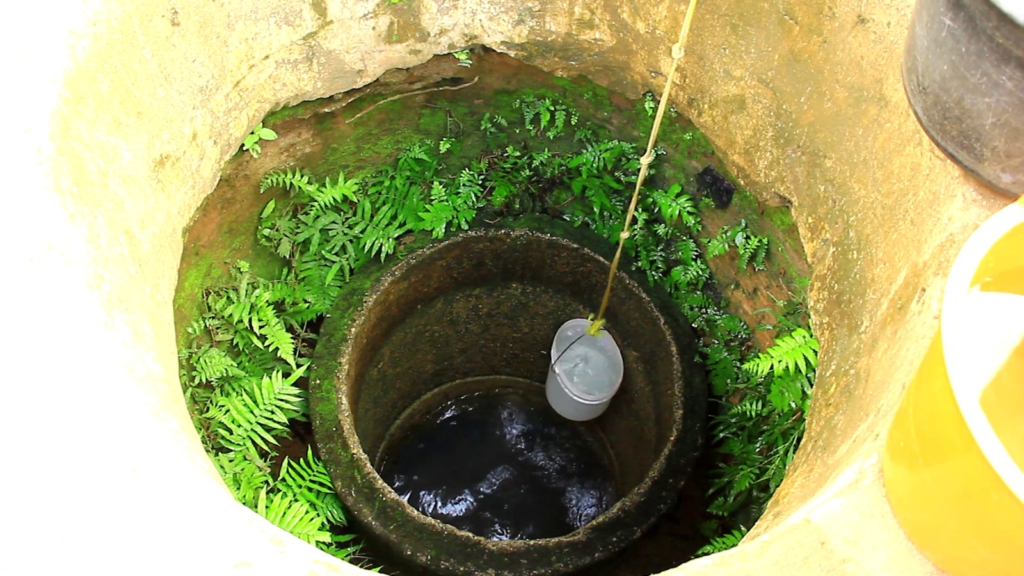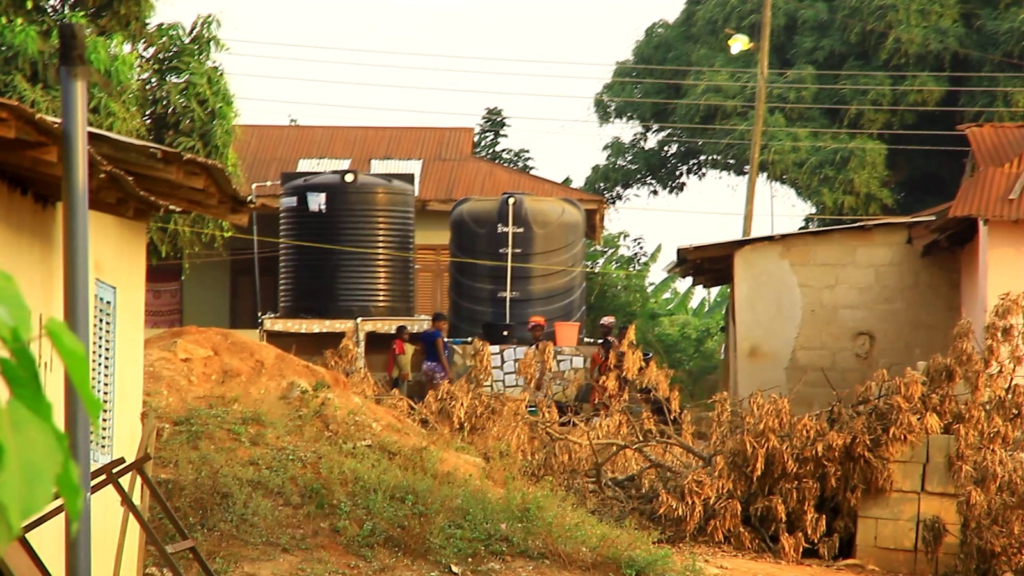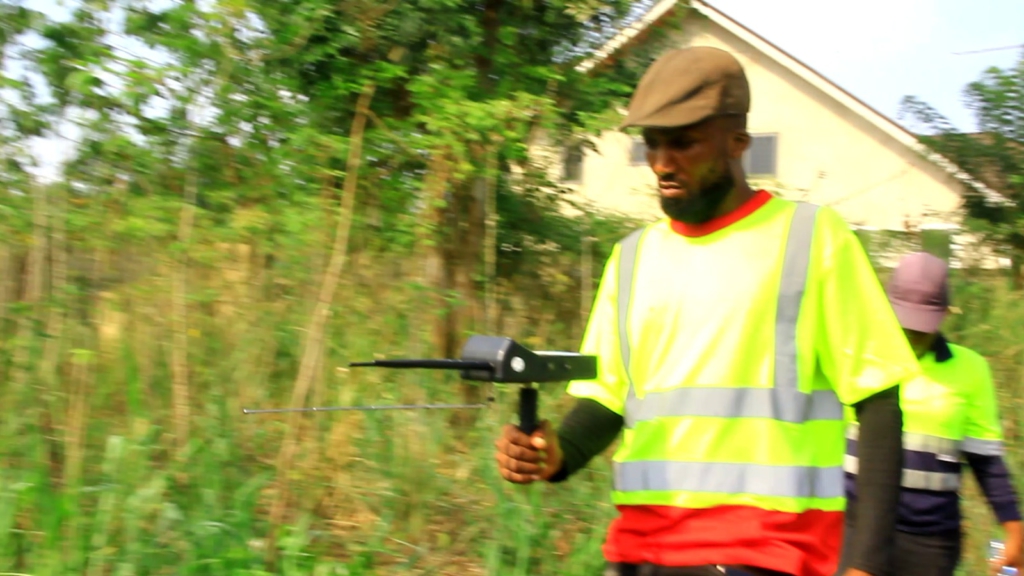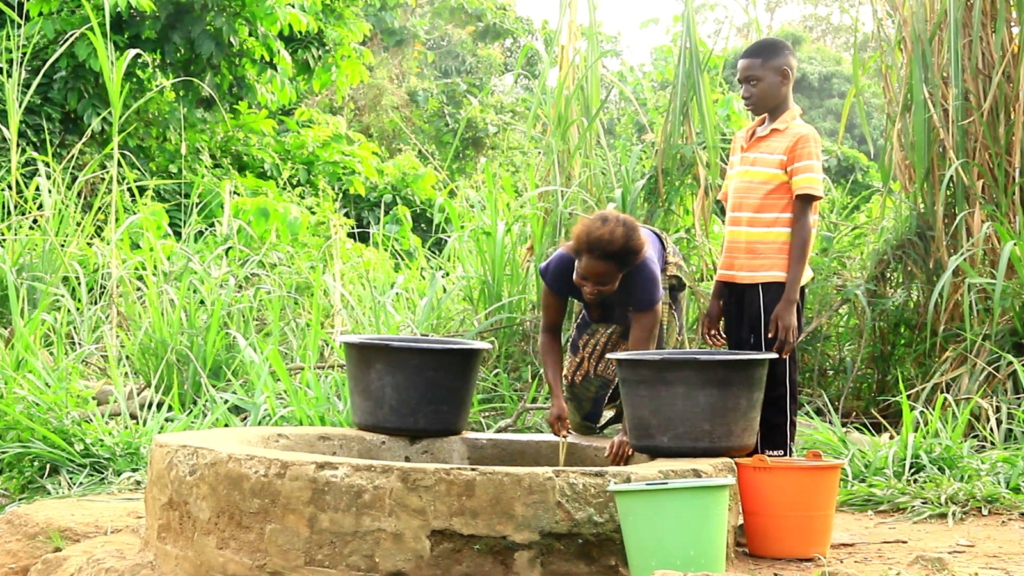[ad_1]
“This has long been a source of water for the Bosofour community,” Afia Asantewaa points to an old well whose condition has deteriorated over time. It sits on the edge of a stream, and Afia had no idea how safe the water was for residents, especially when it rained.
Afia looked inside the well once more and stated that the impurities in the water stun. Afia and three children were the only ones seen drawing water from the well around 4:30 p.m. on Sunday.
It is common to see a crowd of women and children gathered around an old well waiting for their share of water for the next 24 hours.

Residents say it only leaves one open-mouthed to see the crowd in the morning, with many people queuing to get the scarce commodity.
Since there is no public available source for residents, the well, constructed many years ago has been the epicenter of water supply to residents of Bosofour in the Mampong Municipality of the Ashanti region.
“Clean water is our biggest challenge,” Abena Asiamah says, adding that the situation has impacted school children’s punctuality. According to Abena, the situation is dire.
Abena Domaa echoed the sentiments of others who expressed sadness about the lack of potable water for them, stating that water is the most valuable commodity on the planet and that life will continue to be unbearable without it.
The only available mechanized boreholes are those for which residents must pay, but the poor argue that continuing to pay for the life-saving commodity is prohibitively expensive. It is either residents continue relying on the well or pay for the commodity.

According to Atta Boateng, a young lady, water is sold in the community for 40 pesewas and up, depending on the size of the gallon. She describes the cost as high in comparison to the residents’ standard of living.
Bosofour’s struggle for clean water will, however, be over in at least two months as humanitarian organization, Markaz Aleawn Alyaqin (MAA), comes to their aid to build a 10 cubic tank mechanized borehole for the residents.
Richard Anjonam Achiok conducted the hydro-geophysics test for the mechanized borehole construction to begin. Geophysical techniques allow for the detection and characterization of subsurface structures such as aquifers and aquitards.

According to Richard, the location is ideal for the construction of the mechanized borehole to provide residents with continuous water supply.
According to MAA’s Executive Director, Ismail Mohammed Kamil, it is their primary responsibility to ensure that the project is carried out and completed on time and in the designated locations.
The project consists of a solar-powered borehole and a metal tank capable of supplying a large population at one time.
Residents, particularly women, say the humanitarian group’s intervention will reduce their daily stress and allow them to devote more time to other activities.
Yeboah Asiamah Nyamekye is a Bosofour community opinion leader. He, and the Queenmother, Nana Marfowaa Agyakoma praised the group for coming to solve their age-old water problem.

51 more mechanized boreholes will be constructed in various parts of the country by December 2023 to provide residents with clean water.
“It is scheduled to be completed within a period of one year (i.e. from January to December 2023), across Ghana in the following selected regions respectively,” Mr. Kamil said.
The following regions will benefit from the projects: Ashanti, Northern, Central, Western North, Savannah, Bono East, Ahafo, Upper West, Greater Accra, and Eastern Regions.
Mr. Kamil expressed his heartfelt gratitude to KSrelief for entrusting the project to them. “We are therefore stating with firm assurance that, MAA is agreed and are willing to oversee and complete this project wholeheartedly, transparently and accountably.”
DISCLAIMER: The Views, Comments, Opinions, Contributions and Statements made by Readers and Contributors on this platform do not necessarily represent the views or policy of Multimedia Group Limited.
[ad_2]
Source link


